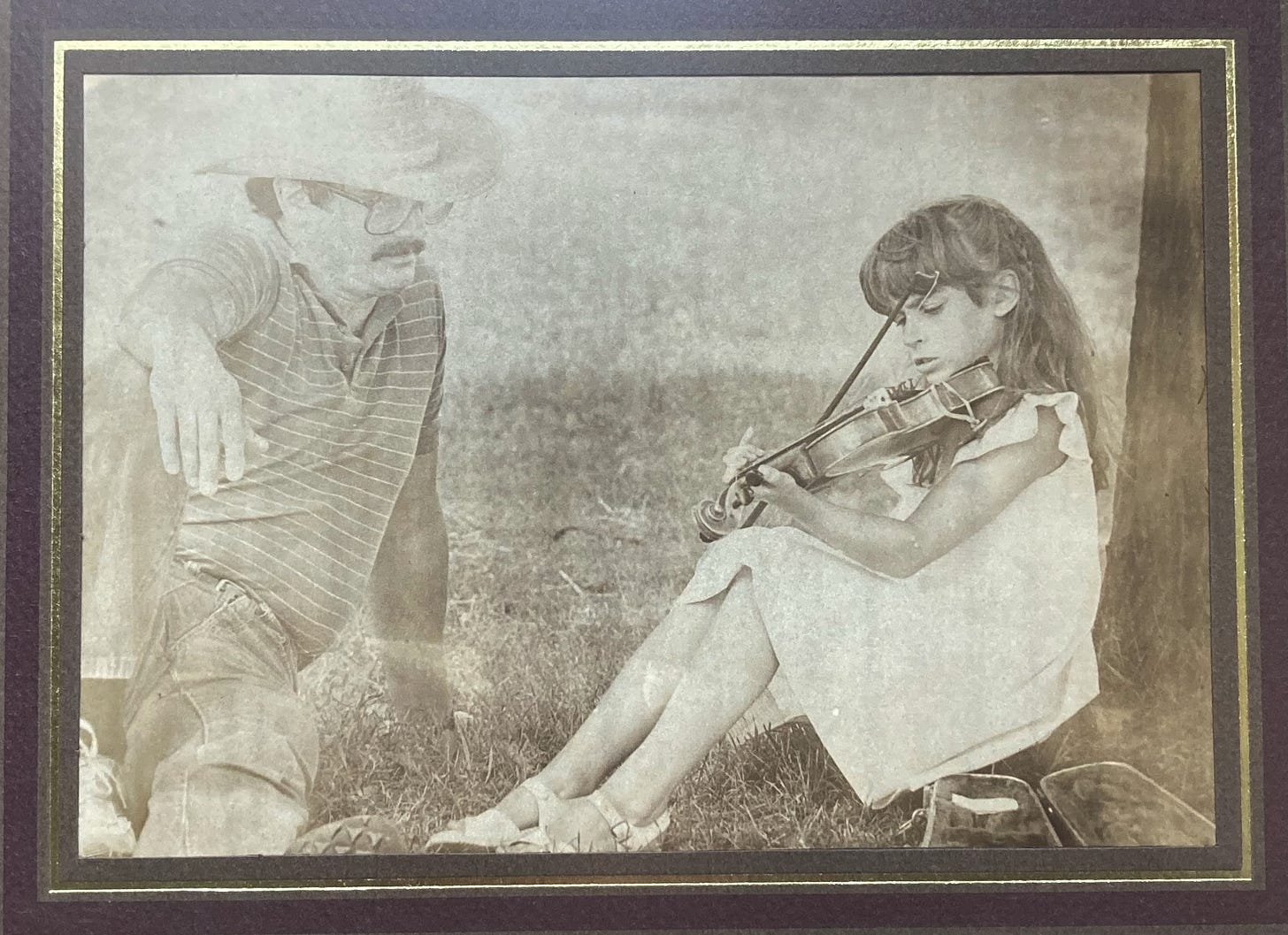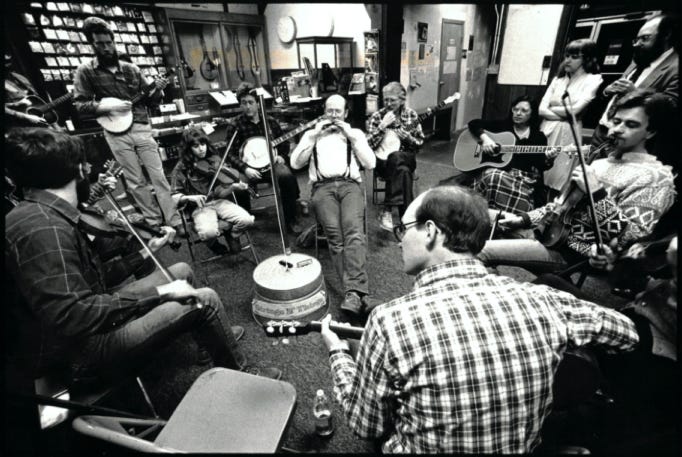
Yesterday was a hard day. It was my dad’s birthday. Or it would have been. He died a little over a month ago and I haven’t quite gotten the grammar down on this next lesson in the ancient language of loss.
After six weeks with my family in Ohio, I returned to a New York City wrapped in fog. The asynchony of cloud time sitting heavy and low on urban time felt like a mirror of my own disjointedness. Time, energy, and focus has been a strange and unpredictable succession of swiftly moving weather fronts. I'm letting feelings and words flow through me and disperse, evaporate, become clouds for some other moment, become rain, become runoff, flowing into aquifers storing water for losses yet to come.
I'm letting grief do its work but I'm not turning it into a story to tell. I love stories (as did my dad), but the act of narrativizing can also be a form of simultaneously entrapping oneself in a fixed position, and distancing oneself from the flow of experience. I feel it everywhere, the blunt force of stories tightly held, the flow of life captured and reduced to narratives that can too easily be diminished, dismissed, discarded, wielded and weaponized in expressions of fear or pain. No one person, no family, no collection of people and their lifeways can be contained in a single story. So, I am holding it all softly, feeling the contours shift and change, shaping and contouring me moment by moment.
What I am finding most comforting in this time of grief is playing my fiddle. I was raised in the traditional/roots music community of Northeastern Ohio. I started learning to play the fiddle at age 8, taking lessons from Pete Smakula, Bill Lestock, and Ron Emoff. I played in fiddle contests, school recitals, local libraries, and was often the only kid at the Friday night jams at Goose Acres. There were pickin’ parties in small houses, on big farms, in back yards, and even the occasional downtown busking with the big boys.

My father lost his musician mother when he was only 10. As her illness progressed, he was sent to live in group home in Cleveland, followed by foster care. With his father and relatives receded to the background of his life, the music he was drawn to in college and early adulthood, and the lifelong friendships and community of pickers and dancers he created through it, helped to fill some of the absence left by his family. It opened up spaces of belonging for me as well, amongst the musicians who welcomed me into the social worlds they created. Of course, no story is the whole story. For my father, it isn’t a simple tale of chosen family and music healing all wounds. And for me, there have been, at times, deeply painful currents that eroded my connection to the music, the fiddle, its role in my relationship with my father, and it took deliberate steps to wind my way back. What I can say is that the music was always there, somewhere, moving us, all of us, family, friends, community, along our looping timelines, connecting me to another language that flows in the deep currents of art and traditional music, and the rhythms that animate the spaces between all we think we know about family, belonging, intimacy, communication, connection, forgiveness, and love.

In a card to my father, Northeast Ohio musician and long time friend Paul Kovac wrote “I’ve always thought of traditional music as a river that’s been running long before us, and will run long after us.” Paul’s sentiment is a beautiful reminder that what we love is always moving, always changing, never one simple story. A commonly held conception of tradition is something still, preserved against change, removed from the relations that formed it in the first place. In a conversation with Brooklyn musician Tomás Majcherski a few months ago, he shared some similar ideas, saying (paraphrasing, to the best of my recollection) that the idea of there being one original, authentic version of a traditional tune is a modern concept, articulated through the value that modernity places on individuation, commodification, and linear conceptions of progress, and reinforced through the reproducibility of music through recording technologies and commercial distribution.
Loving traditional forms of art means loving the pulse of them, the way they can continue to move us, compel us to, like my dad, get up and dance, to hum a tune all the way home and then make something new with the notes we can remember. It means recognizing that art has its own ways and we are part of its story, and that art will keep telling them with new flourishes and syncopations, with voices yet unheard. So when I picked up my fiddle and played it at my father’s bedside in hospice, alongside musician friends who have been accompanying me and my family in rhythms of care for decades, who I hadn’t played with in over 30 years, it wasn’t just a story of individual acts of love. It wasn’t only a story about my dad. It was many stories, many rivers, it was art, love spirit— whatever you want to call it— doing the thing it can do if we let it, if we feel it, if we let our hearts be broken again and again by all the living and going on that feels impossible to do sometimes.
When I shared the news of my father’s passing with a friend here in my local community, he said: you’re not gonna be able to operate heavy machinery for a year. That feels so true. The machinery of my life isn’t quite working right. I try to engage the choreography of living, of living in this city, and I lose the beat, drop my phone in the toilet, forget my passwords, leave the list at home, miss the bus, miss the point, get lost in the fog. I do what I can with the day and then I pick up the fiddle and try to remember the songs I learned 40 years ago or learn something new. In those moments I feel held by something my dad was drawn to, something that drew us together, something that passes through all these timelines and relations.
There’s no conclusion to be drawn, just the choice to make, and keep making, to simply be with it all, the stories and songs, the tears. And the fog. So I’ll just end this post with gratitude. Thank you friends for all your acts of care. Thank you for the tunes and the stories. And thank you all for reading.
And if you would like to read the obituary I wrote for my dad, you kind find it here.




thank you Krista for sharing so tenderly about your dad. reading this was music. flowed like River. may your tender heart be nourished by Grief, Love, Water, Art, Rest.
What a lovely way to be reminded that we are all rivers within rivers. Thanks for sharing word art portals that inspire creativity.